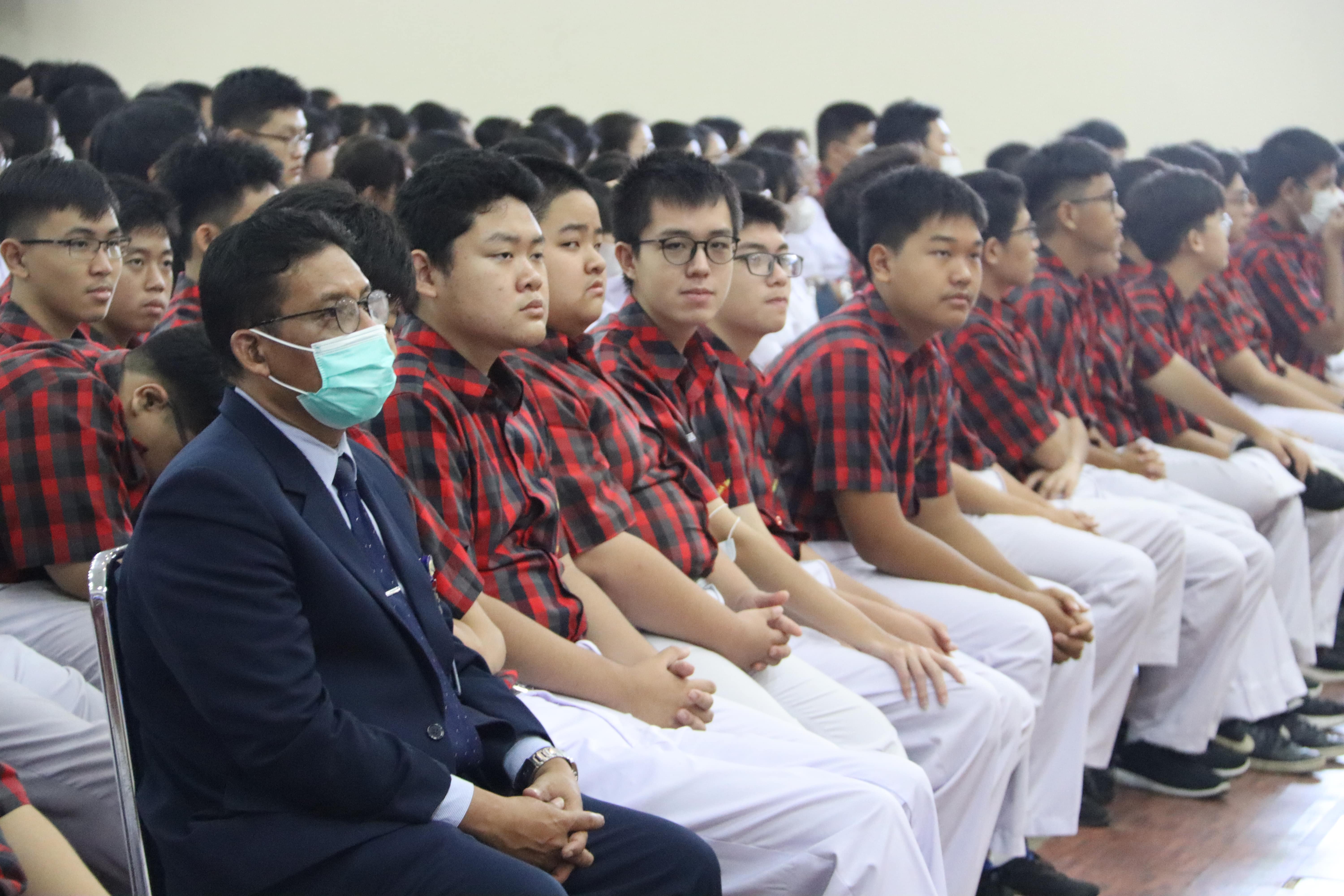Article Detail
15 Common Grammar Mistakes That (Almost) Everyone Makes
15 Common Grammar Mistakes That (Almost) Everyone Makes
People made mistakes, it’s true. Most of us (at least) have done a lot of mistakes in English class. Especially in writing (more specific : grammar), and it’s so important, because grammar is an ultra-micro component in the larger picture. But experience has also taught me that most of us, for better or worse, will approach the work with a jaundiced eye and an itch to judge. While your grammar shouldn’t be a reflection of your creative powers or writing abilities, let’s face it — it usually is.
well, that’s why below I write 15 common grammar mistakes I see routinely, not only in editorial queries and submissions, but in print: in manuals, blogs, magazines, newspapers, trade journals, and even best selling novels, and all of us can learn some of our “famous†mistakes ![]()
Who and Whom
“Who†is a subjective — or nominative — pronoun, along with “he,†“she,†“it,†“we,†and “they.â€
It’s used when the pronoun acts as the subject of a clause.“Whom†is an objective pronoun, along with “him,†“her,†“itâ€, “us,†and “them.â€
It’s used when the pronoun acts as the object of a clause.Using “who†or “whom†depends on whether you’re referring to the subject or object of a sentence. When in doubt, substitute “who†with the subjective pronouns “he†or “she,â€
e.g., Who loves you?, He loves me.
Similarly, you can also substitute “whom†with the objective pronouns “him†or “her.â€
e.g., I consulted an attorney whom I met in New York, I consulted him.Which and That
This is one of the most common mistakes out there, and understandably so.
“That†is a restrictive pronoun. It’s vital to the noun to which it’s referring.
e.g., I don’t trust fruits and vegetables that aren’t organic.
Here, I’m referring to all non-organic fruits or vegetables. In other words, I only trust fruits and vegetables that are organic.“Which†introduces a relative clause. It allows qualifiers that may not be essential.
e.g., I recommend you eat only organic fruits and vegetables, which are available in area grocery stores.
In this case, you don’t have to go to a specific grocery store to obtain organic fruits and vegetables.“Which†qualifies, “that†restricts. “Which†is more ambiguous however, and by virtue of its meaning is flexible enough to be used in many restrictive clauses.
e.g., The house, which is burning, is mine.
e.g., The house that is burning is mine.
Lay and Lie
“Lay†is a transitive verb. It requires a direct subject and one or more objects.
Its present tense is “layâ€
e.g., I lay the pencil on the table
and its past tense is “laidâ€
e.g.,Yesterday I laid the pencil on the table.“Lie†is an intransitive verb. It needs no object.
Its present tense is “lieâ€
e.g., The Andes mountains lie between Chile and Argentina
and its past tense is “layâ€
e.g., The man lay waiting for an ambulance.The most common mistake occurs when the writer uses the past tense of the transitive “layâ€
e.g., I laid on the bed
when he/she actually means the intransitive past tense of “lieâ€
e.g., I lay on the bed.Nor
“Nor†expresses a negative condition. It literally means “and not.†You’re obligated to use the “nor†form if your sentence expresses a negative and follows it with another negative condition.
“Neither the men nor the women were drunk†is a correct sentence because “nor†expresses that the women held the same negative condition as the men.
Envy and Jealousy
The word “envy†implies a longing for someone else’s good fortunes. “Jealousy†is far more nefarious. It’s a fear of rivalry, often present in sexual situations. “Envy†is when you covet your friend’s good looks. “Jealousy†is what happens when your significant other swoons over your good-looking friend.
May and Might
“May†implies a possibility.
“You may get drunk if you have two shots in ten minutes†implies a real possibility of drunkenness.“Might†implies far more uncertainty.
“You might get a ticket if you operate a tug boat while drunk†implies a possibility that is far more remote.Someone who says “I may have more wine†could mean he/she doesn’t want more wine right now, or that he/she “might†not want any at all. Given the speaker’s indecision on the matter, “might†would be correct.
Whether and If
Many of us seem to assume that “whether†is interchangeable with “if.†It isn’t.
“Whether†expresses a condition where there are two or more alternatives.
e.g., I don’t know whether I’ll get drunk tonight.“If†expresses a condition where there are no alternatives.
e.g., I can get drunk tonight if I have money for booze.Fewer and Less
“Less†is reserved for hypothetical quantities.
e.g., The firm has fewer than ten employees.
“Few†and “fewer†are for things you can quantify.
e.g., The firm is less successful now that we have only ten employeesFarther and Further
The word “farther†implies a measurable distance.
e.g., I threw the ball ten feet farther than Jo.
“Further†should be reserved for abstract lengths you can’t always measure.
e.g., The financial crisis caused further implications.Since and Because
“Since†refers to time.
e.g., Since I quit drinking I’ve married and had two children.
“Because†refers to causation.
e.g., Because I quit drinking I no longer wake up in my own vomit.Anxious
Unless you’re frightened of them, you shouldn’t say you’re “anxious to see your friends.†You’re actually “eager,†or “excited.†To be “anxious†implies a looming fear, dread or anxiety. It doesn’t mean you’re looking forward to something.
Different Than and Different From
Words like “rather†and “faster†are comparative adjectives, and are used to show comparison with the preposition “than,â€
e.g., greater than, less than, faster than, rather than.
The adjective “different†is used to draw distinction. So, when “different†is followed by a preposition, it should be “from,†similar to “separate from,†“distinct from,†or “away from.â€
e.g., My living situation in New York was different from home.Bring and Take
In order to employ proper usage of “bring†or “take,†the writer must know whether the object is being moved toward or away from the subject.
If it is toward, use “bring.†If it is away, use “take.†Your spouse may tell you to “take your clothes to the cleaners.†The owner of the dry cleaners would say “bring your clothes to the cleaners.â€
Impactful
It isn’t a word. “Impact†can be used as a noun (e.g., The impact of the crash was severe) or a transitive verb (e.g., The crash impacted my ability to walk or hold a job).
Affect and Effect
Here’s a trick to help you remember:
“Affect†is almost always a verb (e.g., Facebook affects people’s attention spans),
and “effect†is almost always a noun (e.g., Facebook’s effects can also be positive).“Affect†means to influence or produce an impression — to cause hence, an effect.
“Effect†is the thing produced by the affecting agent; it describes the result or outcome.
well, just don’t do these mistakes anymore … there’s a lot mistakes that I didn’t write, but at least we learn from mistakes, right ?
-
there are no comments yet



